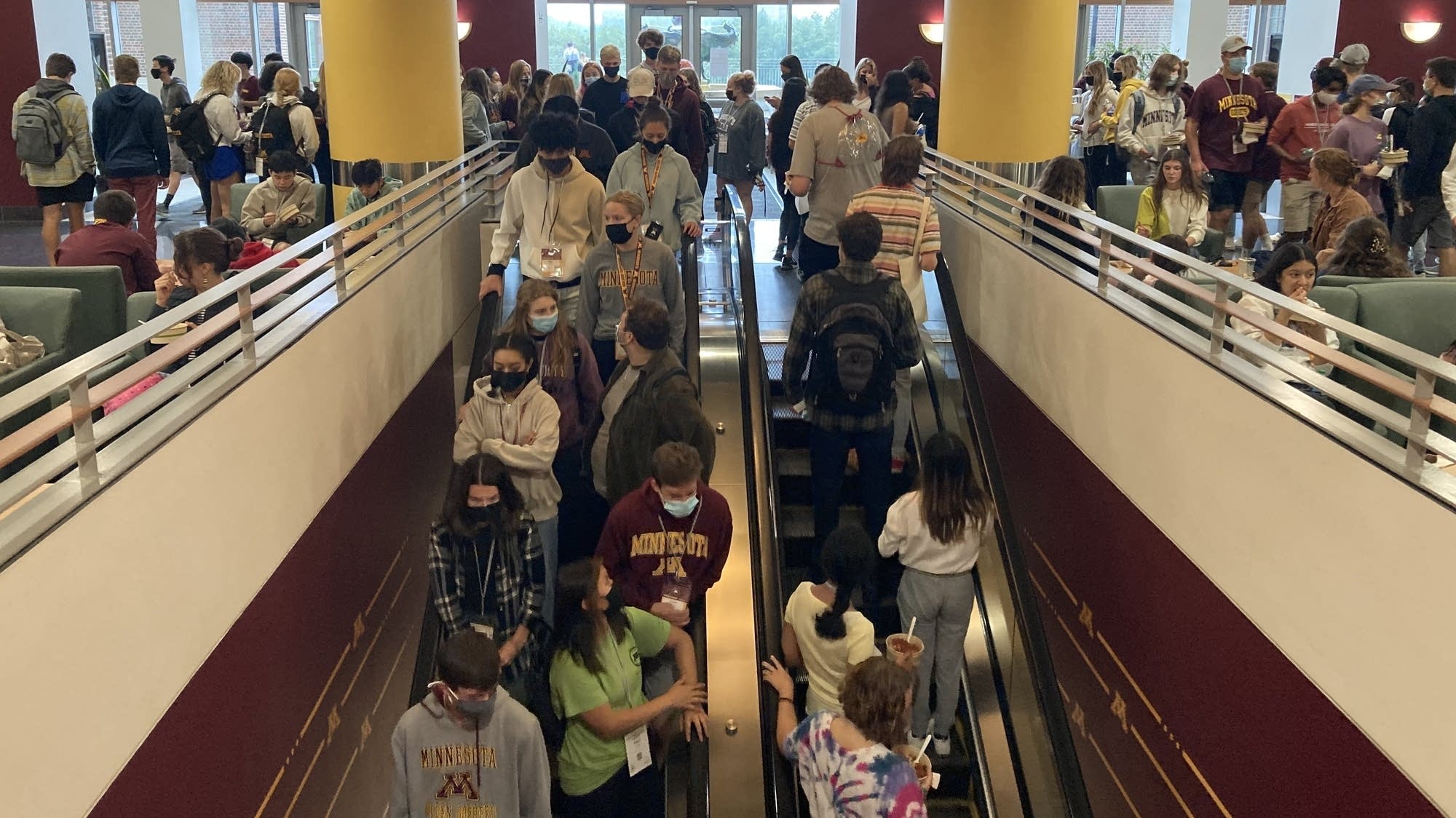Hundreds of U of M professors say immunization policies are not strong enough
[ad_1]
At the University of Minnesota, hundreds of faculty and staff say the school system has not taken sufficient precautions as the state sees an increase in cases related to the delta variant.
Assistant Professor Bobak Ha’Eri has spent the summer looking after his dying father and has a child with health problems at home. He feared going back to a classroom full of students and asked to teach remotely, but said he was refused. The U of M only allows instructors who are themselves immunocompromised to teach online.
So, a few days before the start of classes, Ha’Eri canceled her fall classes. A lawyer, Ha’Eri enjoys teaching but does not have to do so for a living. But he doesn’t want to go back to a crowded campus.
“I would teach this course for free if the U had let me stay online. I mean, it’s boring, but it doesn’t hurt me. But the students who were going to take my course – all 40 and both sections – they were the ones who were injured, â€Ha’Eri said.
Last year, the University rolled out a campus return process that included protocols and restrictions on student travel, as well as a large number of online-only courses.
Now the campus is trying to get back to normal. Students are required to be vaccinated against COVID, with religious and health exemptions. They attest to having received this vaccine in an online form. They must also wear masks indoors. It lacks locks and more stringent interior spacing requirements.
Karen-Sue Taussig, associate professor and chair of the anthropology department, said she “felt incredibly supported” last year.
“This year, I feel like it’s a disaster in terms of the time it took for the University to implement a vaccination mandate. I don’t feel like the vaccine mandate has teeth, â€Taussig said.
Earlier this month, Taussig and more than 500 professors, staff and students sent President Joan Gabel a letter urging her to review several protocols around COVID-19 at school, including the mandate of vaccination, interior spacing and more flexibility in teaching.
University health officials say guidelines from the Minnesota Department of Health (MDH) and the Centers for Disease Control and Prevention (CDC) have helped shape its COVID policies.
The U says reported COVID cases ranged from 36 in the first week and 27 cases in the second. These numbers are in line with what the U experienced for most of last year, outside of the peak in November, when cases were around seven times higher.
One of the biggest points of contention so far is how the vaccine mandate works for students. They are not asked to download their vaccination record but to certify that they have been vaccinated. Jill DeBoer, director of the Health Emergency Response Office at the University of Minnesota, says it’s the same process they use for all other vaccine requirements.
“Like many things in higher education, we use the honor system, and we trust our students, and we trust our staff and our faculty. And we’re seeing on our campuses that students want to do the right thing, â€DeBoer said.
Some professors and staff say there is also a lack of clarity on what to do if people are sick or not vaccinated, said Cherrene Horazuk, and president of AFSCME Local 3800, the University of Minnesota Office Workers Union.
“There’s not a lot of focus on the actual protocols. And things like contact tracing and whether it’s happening or not. And so there’s a fear that you might be exposed and not know it,†said Horazuk.
DeBoer says the university will change its policies if there are serious health issues.
“If we start to see people with COVID who have been vaccinated suffering from serious illness, hospitalization or death, this would be the time, I think, for the CDC and the MDH and for all of us to really rethink our strategies. “
Students have until October 8 to certify that they have been fully immunized.
You make MPR News possible. Individual donations are the source of the clarity of our reporters’ coverage across the state, the stories that connect us, and the conversations that offer insight. Help ensure that MPR remains a resource that brings Minnesotans together.
Make a donation today. A donation of $ 17 makes a difference.
[ad_2]

